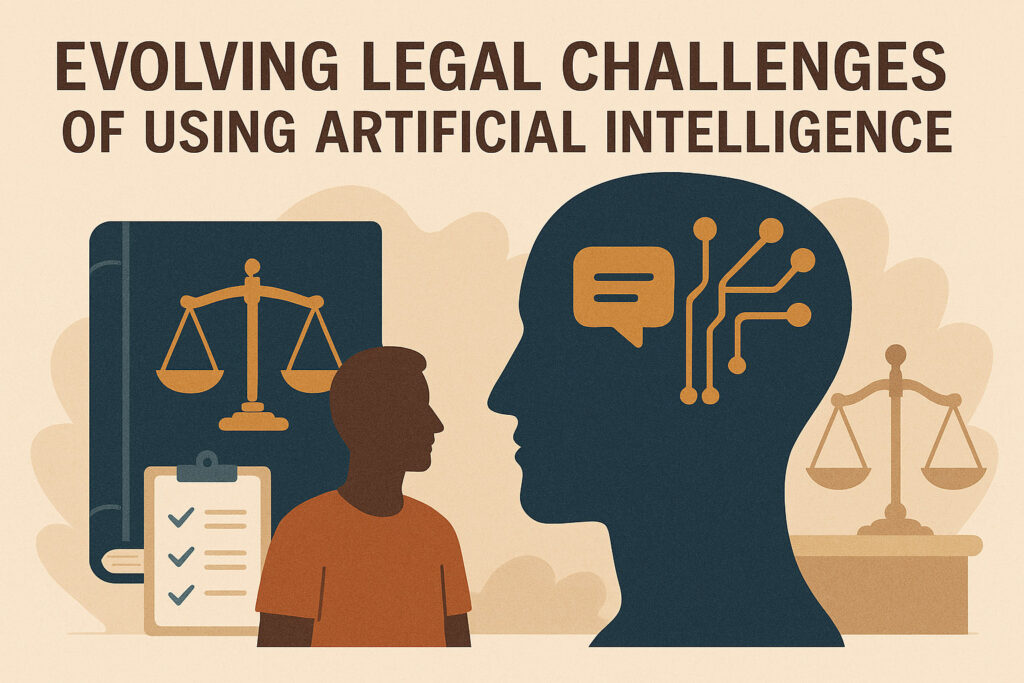
Evolving Legal Challenges of Using Artificial Intelligence
Imagine this: Your nonprofit is about to launch a groundbreaking educational program built using generative AI (GenAI). The content is fresh, engaging, and aligned with your mission. Then, headlines break—courts are questioning whether using copyrighted materials to train AI models qualifies as “fair use.” Suddenly, your launch—and your legal footing—feel uncertain.
For nonprofit leaders, the legal landscape around AI isn’t just about tech innovation. It’s about risk management, ethical responsibility, and compliance. As organizations embrace AI to expand their reach, they also need to understand the legal challenges that come with it.
What Nonprofits Need to Know About GenAI
AI—especially GenAI—is reshaping how nonprofits deliver services, create content, and engage communities. Unlike traditional AI, which focuses on analysis and predictions, GenAI creates original text, images, audio, and video based on massive datasets.
But here’s the catch: Much of that data includes copyrighted material. Whether using those works to train AI systems constitutes “fair use” is now at the center of major litigation. If courts decide it isn’t, AI developers could face massive damages and be forced to re-engineer their models. And those ripple effects would impact everyone using those tools—including your nonprofit.
Key Legal Considerations for Nonprofits
Here’s how these unfolding issues may affect your organization:
- Copyright and ownership of AI-generated content: U.S. law still hasn’t fully decided whether AI-generated work qualifies for copyright protection. That uncertainty matters if your nonprofit relies on GenAI to produce original content.
- Contracts and licensing: If your organization is using or partnering with AI developers, your contracts may need updates to address ownership, liability, and compliance.
- Employment law risks: AI tools used to monitor productivity or automate HR tasks must comply with fair labor practices. Missteps here can trigger lawsuits or audits.
- Regulatory oversight: Some AI technologies may soon require review or approval by government agencies. Nonprofits must stay informed to avoid regulatory violations.
What You Can Do Now
As AI evolves, staying legally compliant is just as important as staying innovative. Here’s how to move forward:
- Audit your AI use: Map out how you’re using AI across operations, and assess whether your policies and contracts reflect current legal best practices.
- Update your agreements: Ensure your contracts with AI providers and staff include provisions that account for emerging AI-related risks.
- Educate your team: Train your staff on the ethical and legal implications of AI so they can use these tools responsibly.
- Consult legal counsel: The rules around GenAI are changing fast. Work with professionals who understand the unique needs of mission-driven organizations.
At Our Community Law, we specialize in affordable legal services for nonprofits—including AI compliance, intellectual property, and contracts. We help mission-based leaders protect their organizations as they innovate responsibly.
Harnessing AI shouldn’t mean taking unnecessary legal risks. Contact us to ensure your nonprofit is protected and prepared for the future.